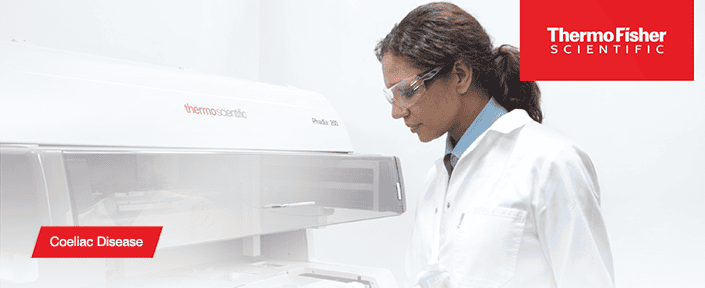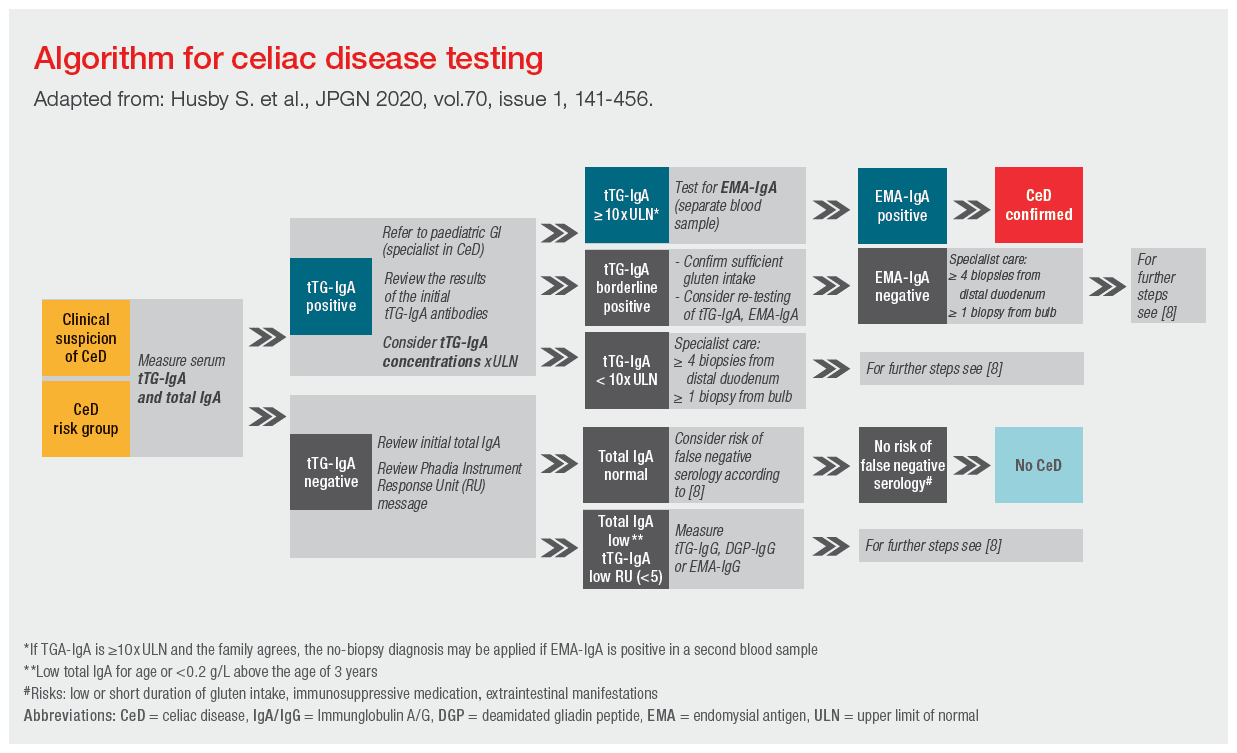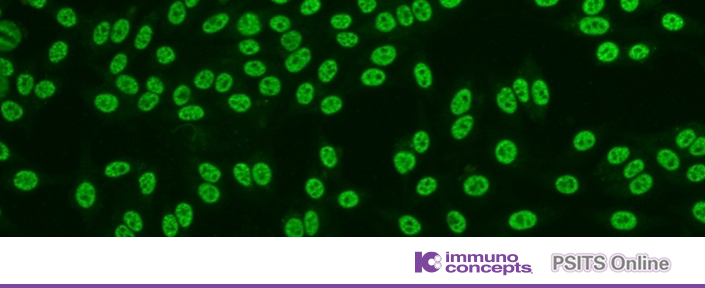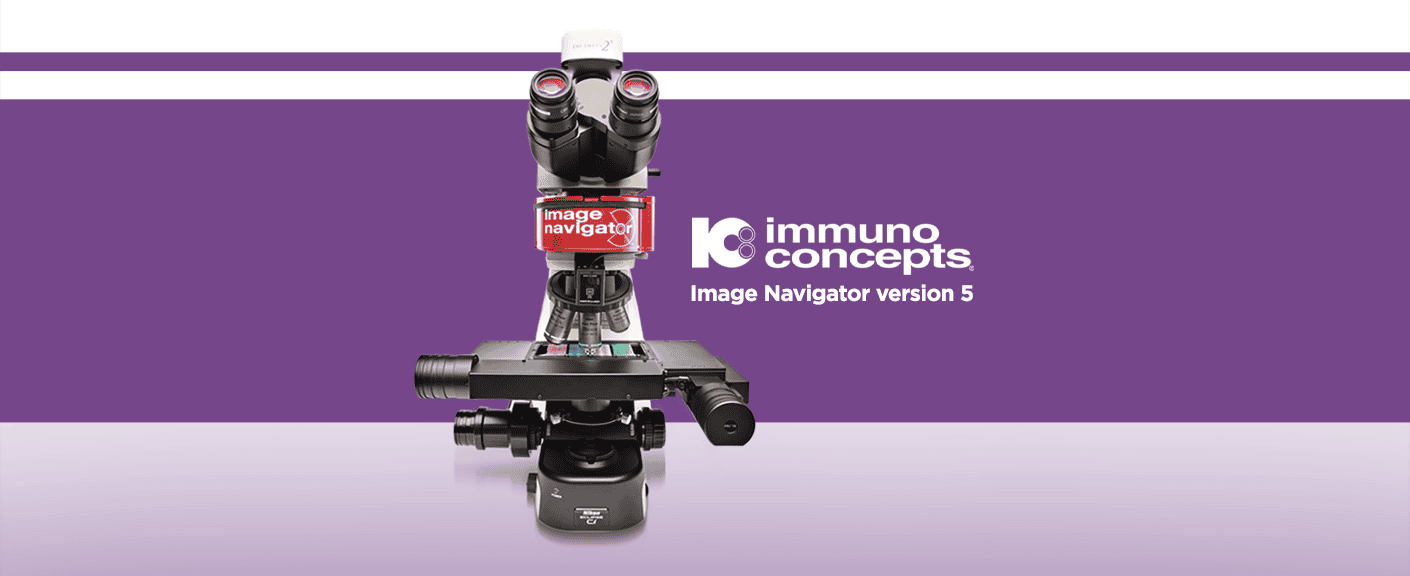Managing IgA-deficient samples in coeliac disease testing – antibody testing to support the diagnosis of coeliac disease.
Celiac disease is a lifelong condition in which ingesting gluten causes chronic inflammation and damages small intestinal mucosa.1 Tissue transglutaminase (tTG) is the major autoantigen in celiac disease,2 and thus, IgA antibodies against tTG are disease-specific serological markers for both celiac disease and dermatitis herpetiformis.3, 4, 5 IgG antibodies against tTG are less specific but helpful markers in patients with IgA deficiency.6, 7, 8
Testing guidelines aim to minimise false negatives
The guidelines established by the European Society for Paediatric Gastroenterology, Hepatology, and Nutrition (ESPGHAN) provide a structured approach for diagnosing celiac disease. According to these guidelines, ESPGHAN advises that assessing total serum IgA along with IgA antibodies against tissue transglutaminase 2 (tTG-IgA) is more advantageous than using other testing combinations. IgG-based testing should be considered only if total IgA is low or undetectable.8 ESPGHAN advises against using deamidated gliadin peptide antibodies (DGP-IgG/IgA) for initial testing. Patients with positive results should then be referred to a paediatric gastroenterologist/specialist.8
Read Thermo Fisher's Managing IgA-deficient samples in coeliac disease testing document
References:
- Mäki M and Collin P. Coeliac disease. Lancet, 1997; 349:1755–1759.
- Dieterich W, et al. Identification of tissue transglutaminase as the autoantigen of celiac disease. Nature Med, 1997; 3:797–801.
- Sulkanen S, et al. Tissue transglutaminase autoantibody enzyme-linked immunosorbent assay in detecting celiac disease. Gastroenterology, 1998; 115:1322–1328.
- Troncone R, et al. IgA antibodies to tissue transglutaminase: An effective diagnostic test for celiac disease. J Pediatr, 1999; 134: 166–171.
- Rose C, et al. Circulating autoantibodies to tissue transglutaminase differentiate patients with dermatitis herpetiformis from these with linear IgA disease. J Am AcadDermatol, 1999; 41:957–961.
- Korponay-Szabó IR, et al. Elevation of IgG antibodies against tissue transglutaminase as a diagnostic tool for coeliac disease in selective IgA defi ciency. Gut, 2003; 52:1567–1571.
- Agardh D, et al. Tissue transglutaminase immunoglobulin isotypes in children with untreated and treated celiac disease. J Pediatr Gastroenterol Nutr, 2003; 36:77–82.
- Husby S, et al. European Society Paediatric Gastroenterology, Hepatology and Nutrition Guidelines for Diagnosing Coeliac Disease 2020. J Pediatr Gastroenterol Nutr, 2020; 70:141–156.
THESE PRODUCTS ARE NOT AVAILABLE FOR PURCHASE BY THE GENERAL PUBLIC.









